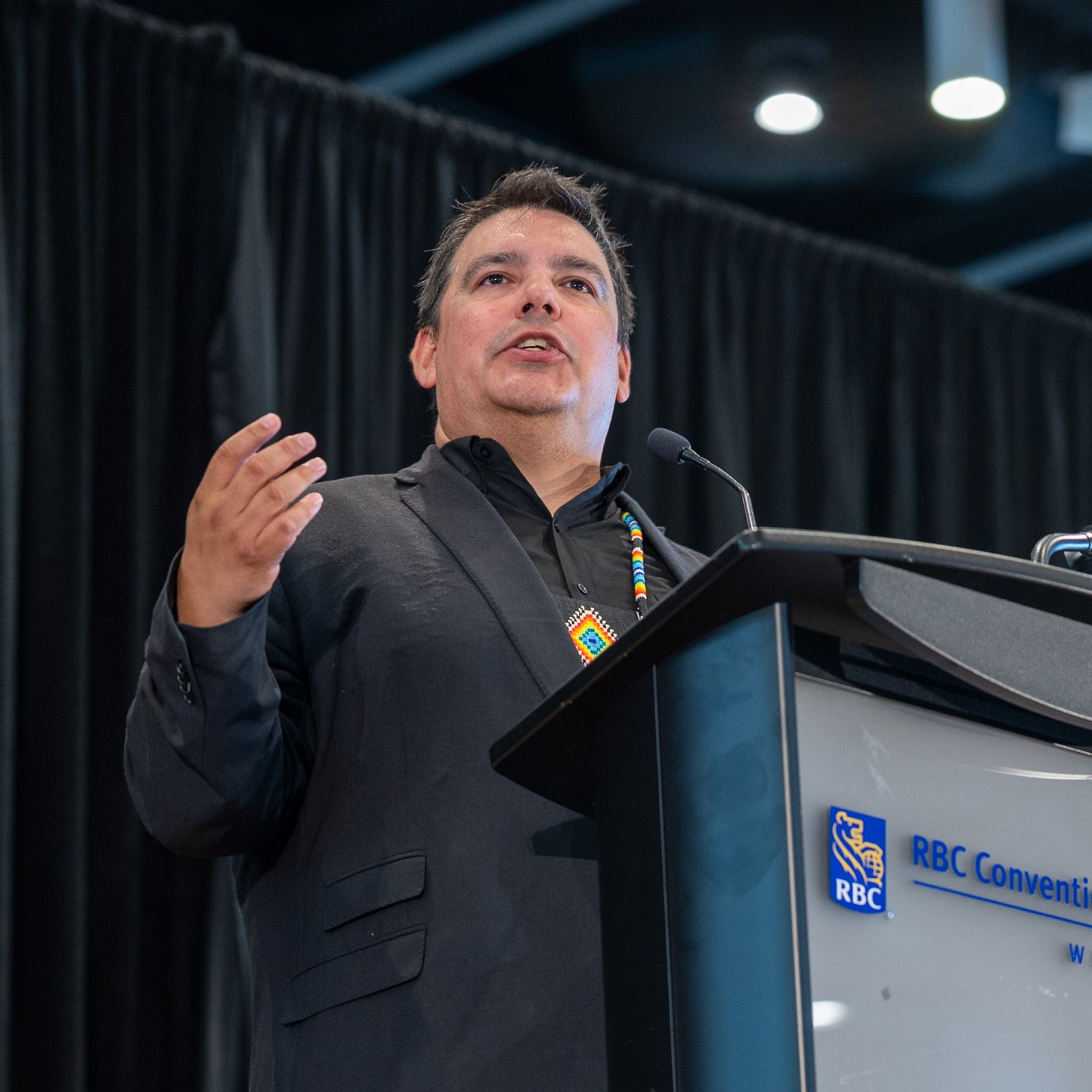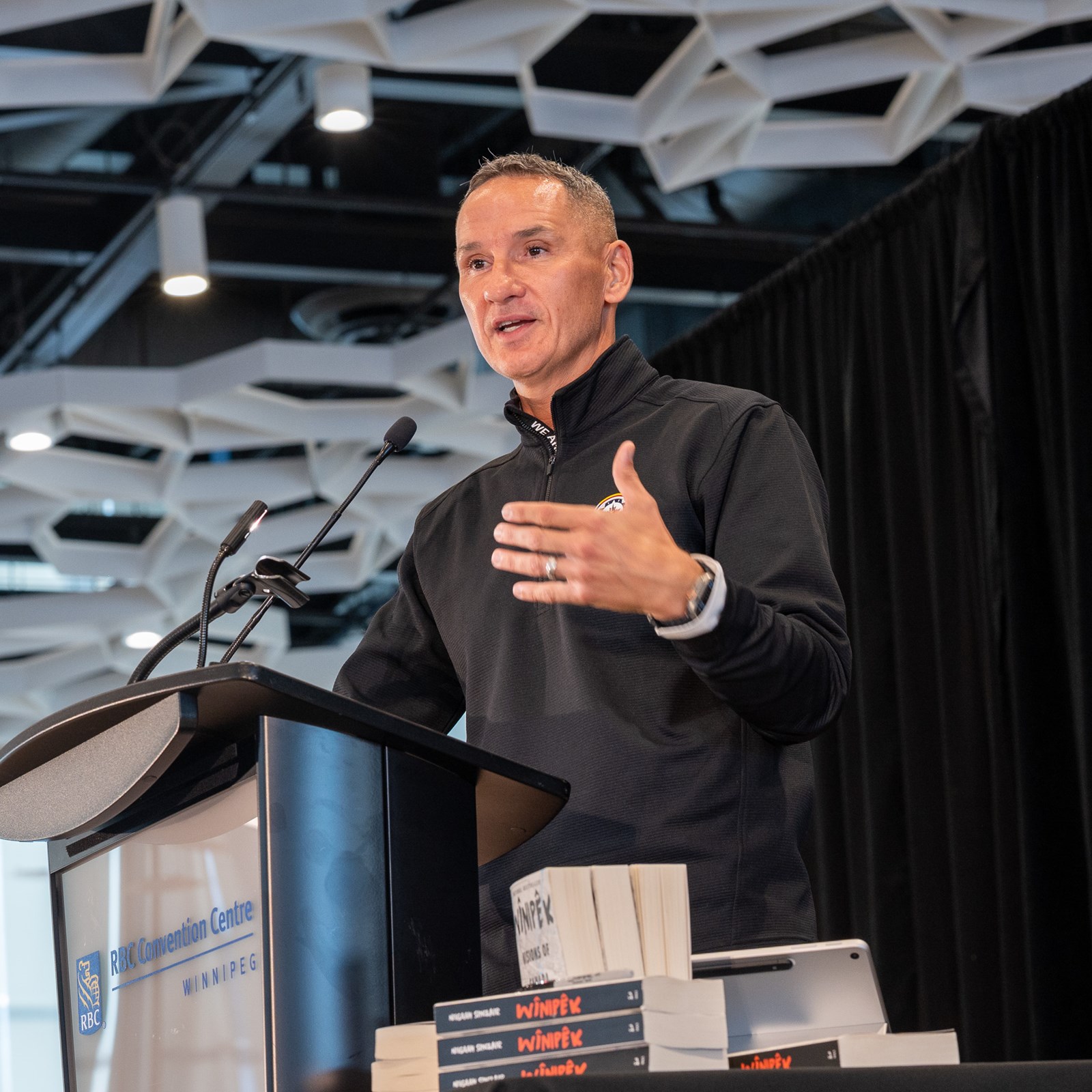On October 1, 2025, the Őū–ń÷Ī≤• (Őū–ń÷Ī≤•) reaffirmed its commitment to the work of reconciliation with the Treaty Education Learning Journey, a division-wide professional development day. The event was an acknowledgment that the impetus to decolonize education and build a more inclusive society falls on us. It was a day for staff to engage deeply with our shared responsibilities as Treaty people and to take meaningful action in our classrooms, schools, and communities.
The morning was anchored by keynote presentations from two important community leaders, Niigaan Sinclair and Kevin Chief. Their words challenged us to move beyond awareness and toward tangible action, reminding us that the path to reconciliation requires our active and sustained effort.

Keynote: Niigaan Sinclair
Anishinaabe writer, professor, and activist, Niigaan Sinclair is one of Canada's most influential voices on Indigenous issues. As a professor at the University of Manitoba and an award-winning columnist, he brings a wealth of knowledge and a passionate perspective on the importance of Indigenous knowledge in education.

Keynote: Kevin Chief
A dedicated community leader and Principal of Chief Partnerships Manitoba, Kevin Chief has a long history of public service and commitment to youth opportunities. A former MLA and cabinet minister, he co-founded the Winnipeg Aboriginal Sport Achievement Centre and continues to be a powerful advocate for education and community development.
From Inspiration to Action: An Afternoon of Practice
Inspired by the morning's keynotes, educators returned to their schools for afternoon sessions dedicated to turning learning into action. This work was inspired by the words of the Honourable Murray Sinclair-iban. He taught us that although the path may be shown, it is up to us to "do the climbing." Guided by this teaching, staff engaged in focused and collaborative efforts.
- Developing Stories of Practice: The central activity was brainstorming and developing "Stories of Practice"—concrete examples of how to intentionally weave Treaty Education into daily work. These stories ranged from incorporating the Land as a teacher and highlighting Indigenous authors in libraries to linking classroom agreements to Treaty themes of respect and reciprocity.
- Reflection and Connection: Using the Mamàhtawisiwin framework as a tool for reflection, staff connected their practices to core Treaty themes like relationship, respect, and mutual benefit. This work directly aligns with Őū–ń÷Ī≤•'s strategic priorities and foundational documents like the TRC's Calls to Action (62-64) and UNDRIP.
- Sharing and Committing: The day closed with staff participating in sharing circles, articulating their "Walking Out With" moments—the key insights and ideas they were carrying forward. This powerful activity solidified personal commitments and reinforced our collective accountability to this transformative work.
In the Őū–ń÷Ī≤•, we understand that Treaty Education is not a checkbox but an ongoing journey. It demands humility, shared ownership, and a collective commitment to action. The path to decolonizing education is steep, but together, we will do the climbing, embodying the spirit of respect, relationship, and reciprocity each step of the way.


-3.webp)